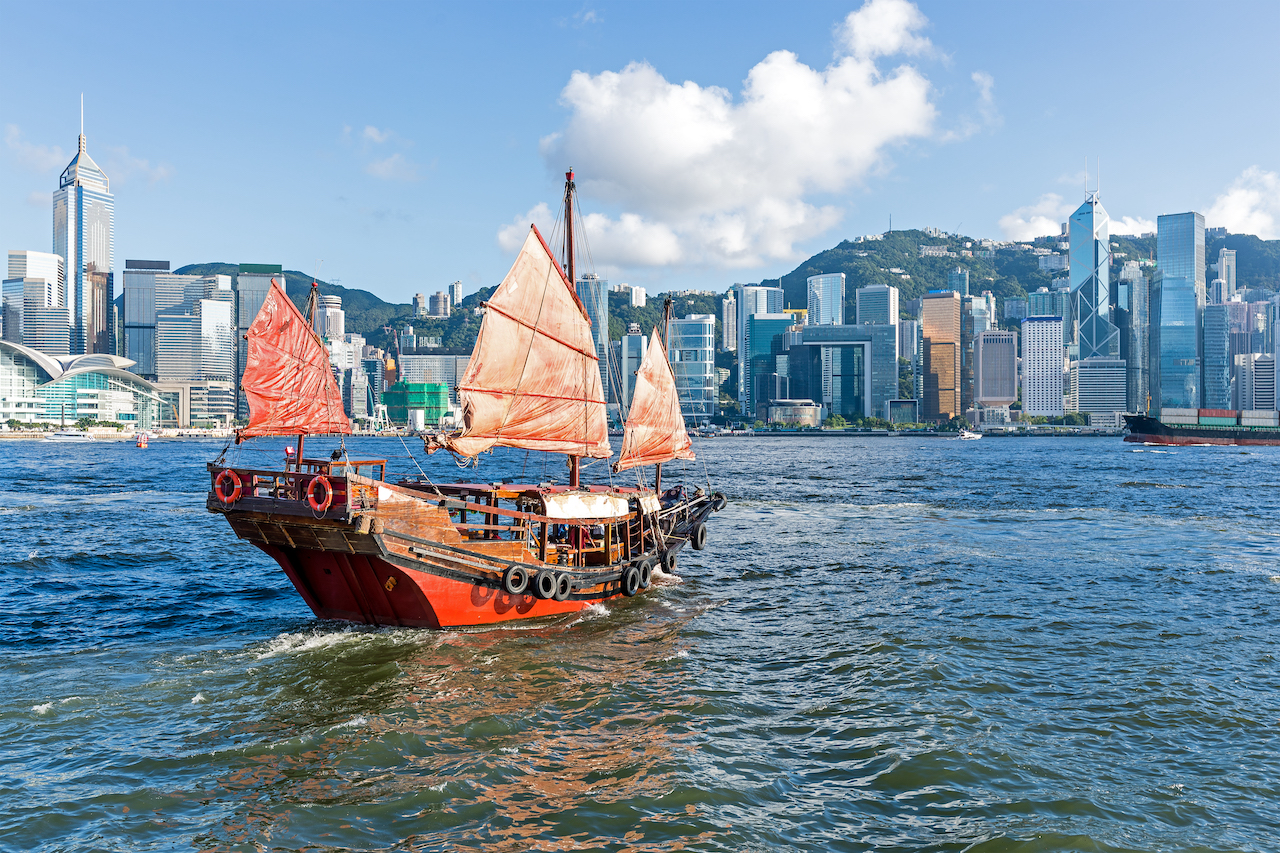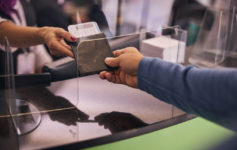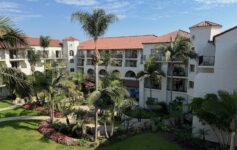In what appears to be a world-first, Hong Kong has said the next step in reopening is allowing entry based on positive antibody results.
If you are considering booking travel or signing up for a new credit card please click here. Both support LiveAndLetsFly.com.
If you haven’t followed us on Facebook or Instagram, add us today.
Hong Kong’s Strict COVID Regulations
Hong Kong has some of the strictest COVID-19 regulations in the world. Virtually no travelers to Hong Kong are permitted unless they are from Australia/New Zealand. Of those, permitted entry (including permanent residents and citizens) cannot have visited any other countries within the last 21 days, and still must satisfy quarantine requirements in an approved hotel for 14 days following a negative test result with an additional COVID-19 test they must pass on the 19th day following their arrival.
Transit customers are approved so long as the transit window is shorter than 24 hours, is on a unified itinerary, meets the entry requirements for their destination, are not connecting to the Chinese Mainland, and do not leave the airport.
There is no waiver for vaccinated travelers.
The city-state has previously attempted a travel bubble with Singapore though this was discontinued. Hong Kong COVID numbers have remained relatively low compared to the global figures, however, it’s been at a dire cost to the economy which Lam is anxious to restart.
Chief Executive Lam Aims to Reopen
According to reports, Hong Kong leader, Carrie Lam, aims to add a simple pinprick blood test to check for antibodies.
“Health authorities may take blood samples for coronavirus antibody testing from arrivals at Hong Kong’s international airport under a proposal aimed at shutting out dangerous new variants, as the city tries to stave off a potential fifth wave of infections.” – South China Morning Post
One of the variants of concern in specific is the United Kingdom variant which has a higher transmission rate than others. The Department of Health currently oversees testing at Chep Lok International Airport on behalf of the Hong Kong government.
Without a doubt, social distancing rules would remain in effect even with the new entry criteria as would masks until Hong Kong’s population can complete mass testing and inoculation.

Antibody Tests Make The Most Sense
In a prior version of this post, I asserted that this would be in lieu of other screening methods as the only entry requirement. This was incorrect, however, it could lead to this as the preferred method going forward, if not in Hong Kong, in other places. I have left the rest of the post as it is because the sentiment remains accurate.
There remain a number of unknown factors when counting those who have a possible immunity or antibodies that prevent susceptibility to COVID-19. The first group of known factors is the amount of recovered COVID-19 survivors which changes every day but is approximately 172M at the time of writing. About 480M have also been fully vaccinated as well – both of those groups are known to have antibodies to the virus with the exception of outlier cases.
There have been 2.2bn doses taken, which have been known to provide some level of antibodies even in two-dose vaccines. Further unknowns, however, are underreported cases. Underreported cases include those who had the virus before it was identified as COVID-19, those who never sought treatment for any number of reasons, and those who were asymptomatic. The CDC estimates this number to be as high as 4.3x known cases for the US alone. While I believe this number could be far higher outside the US than this (for example, India is widely thought to be underreported.) There is also an unknown number of people who may have an immunity to the virus that remains unquantifiable.
| Category | Confirmed | Possible |
|---|---|---|
| COVID-19 Survivors | 172,000,000 | Unknown |
| Fully Vaccinated | 480,000,000 | |
| Partially Vaccinated | unknown | 1,720,000,000 |
| Unconfirmed | unknown | 739,000,000 |
| TOTAL | 652,000,000 | 2,459,000,000 |
Of the 7.2bn people estimated to be living on earth, no less than 10% are confirmed to have the antibodies necessary to prevent new infection of the virus but it could be as high as half. This is just one reason why trying to ascertain who should and should not be permitted entry is inaccurate but also a moving target.
Leff, from View From The Wing, points out the difficulty with vaccine passports. A Cleveland Clinic study of more than 52,000 employees has found there’s no point in vaccinating those who have already had the virus. Despite the G-7 committing to one billion vaccinations donated to the developing world, half of which supplied by the US, roll out will take a very long time.
Given this information, it makes far more sense to test for antibodies and reopen, rejecting those who fail to have the antibodies.
It looks at the question of entry into Hong Kong at a fundamental level: Does this person pose a threat to the people of Hong Kong?
There has been speculation as to how long antibodies remain effective, though not significant proof that they “wear off,” at least not yet. But even if antibodies eventually do disappear, the question of entry is one that addresses whether one has the antibodies at that moment. If the answer is yes, the provenance of those antibodies is moot.
This is the only method that asks and acts on COVID-19 infection threats in a complete way. Entering the United States requires a negative COVID-19 result, regardless of COVID-19 vaccination. As commenters have pointed out in the past, infected travelers test negative up to three days after they contract the virus, and those who have recovered may continue to test positive up to 90 days after they have recovered. However, those who have active antibodies are not a risk to others regardless of nucleic acid test results.
Conclusion
Hong Kong is my favorite city in the world, I can’t wait to return. If antibodies were to be the only requirement for entry, the approach seems to be unique, thoughtful, and hopefully effective. It answers the question as to whether someone poses a risk – the only question that should be asked. When the answer is “no” they would be welcomed to the city if the measures are approved. If Hong Kong can prove effective in this regard, hopefully, other destinations will follow the same guidelines.
What do you think? Do you prefer Hong Kong’s approach? Will it be approved?




The problem I see is The Chinese government collecting blood samples from travellers on top of biometric data already being collected. We know The Chinese government cannot be trusted.
@iv +1
@Kyle – Are antibody tests rapid?
I’m sorry but your post is really quite unresearched. The proposal at hand in HK is not a step towards allowing visitors in whatsoever. It’s an additional layer of inconvenience and testing on top of the existing Byzantine set of rules and procedures. It feels like you didn’t even read the whole article. Not once does it mention anything about liberalization of entry requirements and any claims to that end are wholly unsubstantiated and solely conjecture.
I traveled regularly to Hong Kong for some 30 years. Always loved it. But for me, Hong Kong is now finished. Beijing’s interference and heartless cruelty has killed my desire to ever return.
You can argue that those with antibodies pose no threat. But a large segment of those vaccinated and previously infected make minimal to no antibodies and also pose no threat (T cell immunity).
Yet another bureaucratic decision made with little science behind it.
Either I’m missing something or this headline (and post) are extremely misleading. First, it appears that this is currently just an idea that is being considered at this point, rather than an actual policy change that has happened. Second, from what I can find, it looks like this would be an antigen test in addition to a regular Covid test and vaccine requirement (though this is ambiguous and might be based on a mistranslation) – and I’m not sure it is coupled with expanding entry rather than just being an additional test for those that are currently able to enter.
Hong Kong has been one of my two or three favorite cities in the world since I first visited ~15 years ago, and I’ve already had one planned trip there cancelled due to the pandemic. That said, I’m not sure I’m in a rush to return. I’m not very interested in visiting a Hong Kong with pandemic restrictions still in place (especially if large portions of the local population have not yet had the opportunity to get vaccinated), and even beyond that I’ve enjoyed HK less during my visits over the last few years due in part to the expanded mainland influence.
Couldn’t agree with Kenneth more. Hong Kong is done. I will not be back. Shame. It’s an incredible city. But it is not a place I have any interest in ever going back to.
It has never been the same after Kai Tak Airport. Back when you could sip a whiskey and smoke a cigar at the Captains Bar at the Mandarin. Even the Star Ferry feels different, though essentially the same. Tokyo is the last city in Asia where I still feel joy and excitement.
@Stuart What about Taipei?
This article is inaccurate. There is no mention of HKG opening to non-residents with this test.
I believe facts need to be corrected, the Air Travel Bubble between Singapore and Hong Kong is suspended not discontinued. It never started so not possible to discontinue. Reading on government sources, It seems like they will commence discussion again in July.
I have to agree with Kenneth. I was born in HK and migrated to the US and have gone back regularly pre-COVID. With Beijing and its evil empire and unlawful interference with the 50 years of sovereignty over HK now broken, HK will never the same ever again. I hate the Communist govt with such a passion.
Totally Misleading title.
These antibody tests would be done in ADDITION to the current stricts requirements.
Once US-Shengen flights resume, it will be fun to watch how long self isolated territories in SEA and East Asia will behave.
Those of us who love Hong Kong but are fortunate enough to live outside of it in countries where we can criticize freely and without fear, must protest on behalf of Hong Kongers who have lost their right to protest. Tibet has shown the way (backward).
Next will come more police and the all-seeing cameras on every corner. More arrests. The school system is already amplifying patriotic education. The Cantonese language will be vilified.
Down with the CCP! Support HK!
This article is confused on multiple levels . . . save for the assertion that HK is (or maybe was) the greatest City known to mankind.
Funniest line: “. . . it’s been at a dire cost to the economy which Lam is anxious to restart.” Anxious to restart?!?